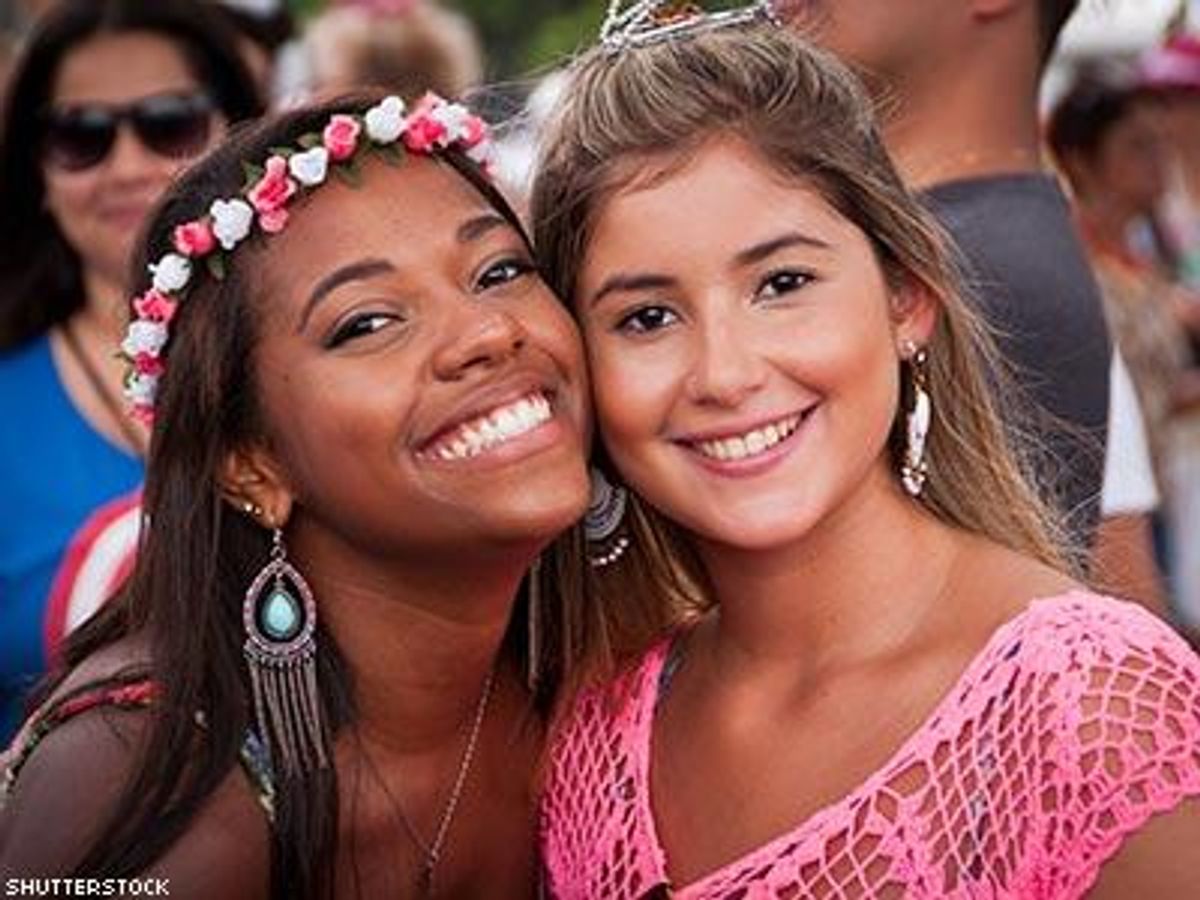Women are more likely to consider a romantic opportunity with a person of the same sex than men, say researchers from the University of Notre Dame.
The researchers found that men were more likely than women to report being "100 percent heterosexual" or "100 percent homosexual" continually throughout their lives. Women, on the other hand, were three times more likely than men to report a shift in their sexual orientation over time, and more likely to self-identify as bisexual.
The study uses data from the National Longitudinal Study of Adolescent to Adult Health, which tracked the sexual activity of 5,018 women and 4,191 men as they aged. Participants responded to questions about their sexual behavior posed at the average ages of 16, 22, and 28 years old. At each point, the participants were asked if they experienced same-sex attraction or had participated in same-sex sexual activity.
"Women have a greater probability than men of being attracted to both men and women, which gives them greater flexibility in partner choice," said Aura McClintock, assistant professor of sociology at Notre Dame, in a press release announcing the findings. "Having flexible sexual attractions may grant greater importance to contextual and experiential factors when it comes to sexual identity."
Notably, women who didn't have children at a young age, were conventionally attractive, or had higher education were less likely to be bisexual. McClintock suggested this is due to having "more romantic opportunities with male partners."
"Women with some degree of attraction to both males and females might be drawn into heterosexuality if they have favorable options in the heterosexual partner market," McClintock stated. She speculated that women's tendency to partner with male partners, even when they may experience attraction to other women, is an outcome of trying to fit into an identity that appeased a "hetero-conformist" society that "discouraged alternative sexual identities."
"Women who are initially successful in partnering with men, as is more traditionally expected, may never explore their attraction to other women. However, women with the same sexual attractions, but less favorable heterosexual options might have greater opportunity to experiment with same-sex partners. Women who act on same-sex attraction are more likely to incorporate same-sex sexuality into their sexual identities," McClintock said.
While the study does not suggest that bisexuality is a choice, it does point to the importance of social context when examining which women were open to exploring their sexualities, compared to those who were not.
"I do not think that women are strategically selecting an advantageous sexual identity or that they can 'choose' whether they find men, women, or both sexually attractive," McClintock said. "Rather, social context and romantic experience might influence how they perceive and label their sexual identity."
The study's findings were presented Tuesday in Chicago at the American Sociological Association's 110th Annual Meeting.


















































































